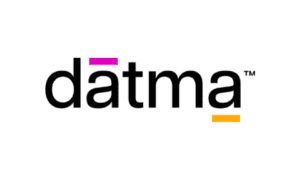The largest privacy regulator in the European Union punished Meta, a social media company, 91 million euros ($101.5 million) on Friday for unintentionally retaining certain users’ passwords without encryption or security.
TakeAway Points:
- Social networking behemoth Meta was fined 91 million euros ($101.5 million) by the top privacy authority in the European Union on Friday for unintentionally storing certain users’ passwords without encryption or protection.
- The investigation was started five years ago when Meta informed the Data Protection Commission (DPC) in Ireland that it had some passwords stored in “plaintext.”
- Manchester, in northern England, launched the first phase of a $2.3 billion (1.7 billion pound) hub for scientific and technology enterprises on Friday. The project is a large-scale initiative spearheaded by investors from the corporate and university sectors.
EU privacy authority fines Meta
The inquiry was opened five years ago after Meta notified Ireland’s Data Protection Commission (DPC) that it had stored some passwords in ‘plaintext’. Meta publicly acknowledged the incident at the time and the DPC said the passwords were not made available to external parties.
“It is widely accepted that user passwords should not be stored in plaintext, considering the risks of abuse that arise from persons accessing such data,” Irish DPC Deputy Commissioner Graham Doyle said in a statement.
A Meta spokesperson said the company took immediate action to fix the error after identifying it during a security review in 2019 and that there is no evidence the passwords were abused or accessed improperly.
Meta engaged constructively with the DPC throughout the inquiry, the spokesperson added in a statement on Friday.
The DPC is the lead EU regulator for most of the top U.S. internet firms due to the location of their EU operations in the country.
It has so far fined Meta a total of 2.5 billion euros for breaches under the bloc’s General Data Protection Regulation’s (GDPR), introduced in 2018, including a record 1.2 billion euro fine in 2023 that Meta is appealing.
Manchester launches $2.3 billion science and tech innovation district
The northern English city of Manchester on Friday opened the first phase of a 1.7 billion pound ($2.3 billion) hub for science and technology companies, part of a large-scale project driven by university and private sector investors.
The ‘Sister’ innovation district on the University of Manchester’s former city centre North Campus envisages 2 million square feet (186,000 square metres) of commercial space and 1,500 new homes and aims to boost the city’s status as a science and technology centre.
University cities like Oxford, Cambridge, and Manchester have been creating environments where investors can be on hand to partner with startup companies, a trend Britain’s new Labour government wants to continue to attract more private investment to help upgrade the country’s public services and infrastructure.
The 15-year project Sister Project is a joint venture between the University of Manchester and Bruntwood SciTech, a development company owned by property firm Bruntwood, Legal and General, and the Greater Manchester Pension Fund, and will see a total investment value on completion of 1.7 billion pounds.
The first tenant, climate tech investment company Sustainable Ventures, moves into the site’s Renold Building this November.
“This is a significant moment for Manchester,” said Bev Craig, leader of Manchester City Council.
Sister forms part of the government-funded Greater Manchester Investment Zone, which uses 160 million pounds of public money to help attract businesses to the city over the next decade.
Sister said it will announce plans for its first major development zone soon.



































